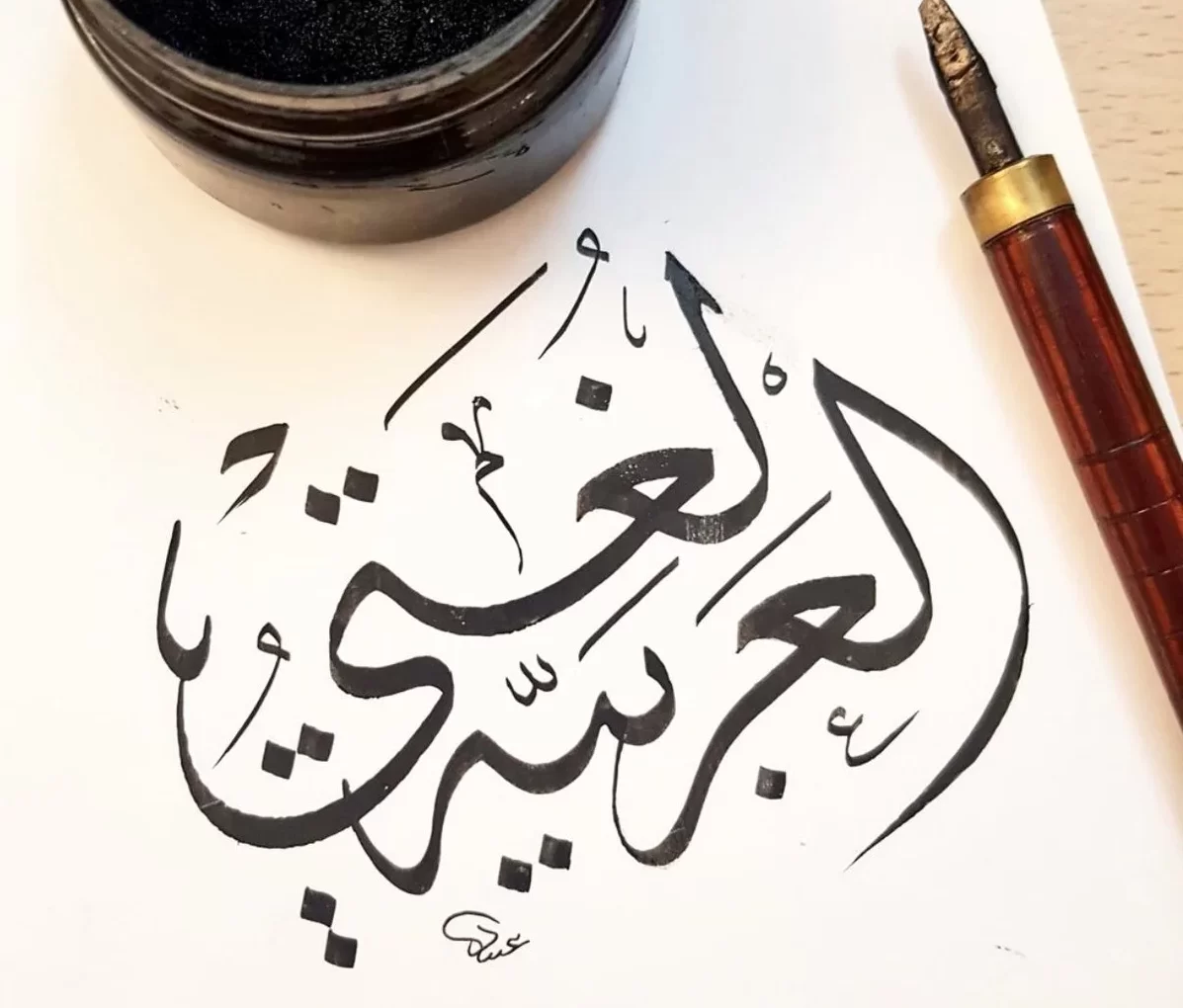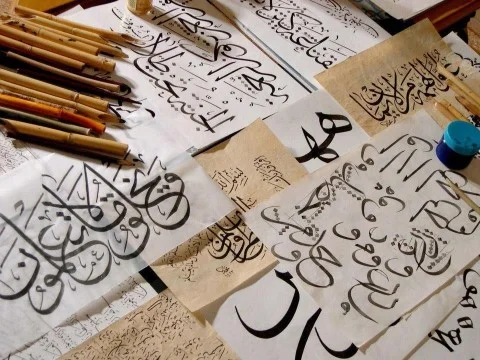Why is Arabic so hard to learn? – Arabic has a reputation among English speakers as a difficult language to learn. Nobody talks about learning Arabic via watching cartoons, and nobody provides Arabic lessons in middle school.
Is Arabic, however, deserving of such a reputation? Is it difficult to learn Arabic? Is it possible that a language is more than its perceived difficulty? Let’s see what we can find out!
Why is Arabic so hard to learn?
While we are talking about Why is Arabic so hard to learn? But first, some background on the well-known picture of the Arabic language and its difficulty.
Most people’s initial impression of Arabic is that it sounds complicated.
The numerous consonant clusters and unique sounds in Arabic may be challenging to learn for those familiar with the consonant vocal beat in Spanish and Japanese.
Some “pharyngeal” sounds in Arabic are formed by actually restricting the throat.
So’s crucial to remember that noises created from the throat aren’t intrinsically difficult; tiny toddlers who grow up speaking Arabic do it all the time.
However, whether you come from a European or East Asian language background.
You are probably not used to it though Danish does have some pharyngeal sounds.
That implies it takes a lot of practice to create these sounds alone and much more training to talk effectively with these sounds in the middle of sentences.
What makes Arabic so challenging to learn?
The case system is another aspect of the Arabic language that makes it challenging to master.
Cases are word ends that provide additional information about the subjects, objects, and direct objects.
In English, this information is hidden, but in languages with cases, it is obvious.
Focus on the main sentences that we will mention to you in the following points:
- البَيْتُ جَميل. – (The house is hot) – “al-baytu ǧamīl.”
- دَخَلتُ البَيتَ الآن. – (I entered the house now.) – “daḫaltu al-bayta al-ʾān.”
As you can see, the term (al-Bayt), which means “home,” changes in the second phrase because it is the direct object, rather than the subject, as it was in the first sentence.
Learners of Modern Standard Arabic must memorize these modifications for each noun and adjective and both genders!
Don’t run away just yet if all of this has turned you off. When it comes to studying Arabic, it’s not all bad news!
” Book your free trial now from our Learning Arabic For Kids Course“
What is a “hard” language?
When you tell someone you’re learning Japanese, they’ll undoubtedly comment on how complex the language is.
And if you’ve studied Japanese, you’re undoubtedly aware that it’s a complex language.
But what exactly does that imply? What exactly do we mean when we say a language is complex?
After all, kids can learn every language on the planet — and adults can, too, if they put in enough time and effort.
When studying a language as an adult, however, a few languages take longer and need more work to master than others.
What is the reason behind this? We speak our language (or languages) like a virtuoso guitarist plays their instrument: fluently and pretty wonderfully.
Learning a new language is similar to learning a new instrument from a professional musician.
If you give a guitarist a mandolin, many of their existing abilities will come in handy:
Tuning the instrument, strumming, and so on.
On the other hand, a flute needs an entirely different set of capabilities. And what about the drums?
When it comes to learning the drums, our guitarist is beginning fresh.
If English is a guitar, then Dutch is a mandolin.
On the other hand, Japanese is more like learning to play the drums: you have to learn entirely new techniques.
So, one of the significant determinants of language difficulty is how different the language you’re learning is from the one you started with.
In this piece, we’ll look at why Arabic is so hard to learn?. Our most recent course is usually regarded as the “difficult” language to master for English learners.
But we’ll also talk about why difficult isn’t the same as impossible and why it’s a task that anybody can tackle.
What are you learning Arabic for exactly?

The title of this post is based on your motivation for studying.
Why is Arabic so hard to learn?
Every day, we receive letters from people worldwide who want to study Arabic.
Many people want to learn the Arabic language for many reasons, the most important of which may be limited to the following:
- One of my relatives speaks Arabic professionally (husband or wife..etc.).
- I want to work in an Arab country.
- I would like to learn Arabic to learn more about my religious beliefs
- My hobby is learning new languages, and Arabic is one of the languages I would like to learn more and more about.”
The answer to the question “Why?” is, believe it or not, surprising.” it may precisely predict whether or not a person will succeed in learning Arabic.
When you’re invested in the outcome, things are a lot simpler.
Even when things are difficult, you’ll find a way to persevere.
Is Arabic the most complex language to learn?
The US administration appears to believe so.
The United States Department of State has spent decades teaching languages to persons who desire to serve in the military or the diplomatic corps overseas.
According to them, becoming fluent in Modern Standard Arabic takes an average motivated learner roughly eighty-eight weeks of full-time study.
That puts it on par with Mandarin, Japanese, and Korean, which are known for challenging to learn.
And when you think that you may not be as motivated as a future diplomat, nor do you have the financial resources to study full-time.
You may begin to be concerned about your chances.
There’s one more thing that should make you stop and think.
Consider how many Arabic language classes you have access to vs. language lessons for other, “easier” languages. Wouldn’t more people study Arabic if it were easier?
But, if Arabic is so complex, why is it one of the most widely spoken languages on the planet?
How is it that you can go to a mosque in almost any city on the globe and find individuals who can interpret Classical Arabic scripture to you with ease?
As it turns out, the Arabic language is complex in certain areas but easy in others, balancing the strain.
This is one of the most important things to know when you want to answer the question Why is Arabic so hard to learn?
” Read also: how long to learn arabic“
What most challenging level of learning Arabic?
Let’s clarify any misunderstandings about Arabic dialects and determine the most challenging level.
Adding to the initial point, the Arabic you learn will be determined by your goals.
On this site, we also get a lot of queries concerning dialects:
I’m not sure which dialect I should learn because there are different Arabic dialects.
The answer is straightforward, but only you can provide it since it relies on who you want to interact with, where you want to go in the world, and what you want to do with Arabic.
Are you in the military and being stationed in Iraq?
So, Here you should study Iraqi.
Do you have Jordanian relatives?
Jordanian is a language that is worth studying “Levantine.”
Do you want to read newspapers but not have to interact with others?
MSA is a valuable skill to have.
Are you considering relocating to Morocco?
Moroccan is a language worth learning. In essence, it’s common sense.
But, you’ll be surprised by the number of people who reach us with queries such as,
I am a massive fan of Lebanon as well as Lebanese culture. However, I’ve been told that Egyptian is the best language to learn.
Why is it better if you don’t care about Egypt?
However, suppose there aren’t any resources available for the dialect you’d like to learn. In that case, there are resources equivalent idioms; we suggest retaining a dialect that is different from the one you wish to master.
If you can’t find Libyan materials, you may study Egyptian or Tunisian.
Aside from that, stick to what you’re passionate about.
One important note: MSA should not be learned as a spoken dialect.
Nobody speaks it as a native language anywhere, as we frequently remark here.
If literacy is your primary objective, Modern Standard Arabic is the only language to learn.
Understanding Arabic grammar
Arabic grammar is simple compared to other languages.
The complexity of a language’s grammar is one factor that makes it challenging to learn.
Now, the grammar of every language is complex in its manner.
Try explaining the basic principles in English to explain why we use “a girl” as well as “the girl” as well as why we speak of “girls,” but also “the girls”; however, the latter is not “a girl” -and if it’s not easy to explain, consider about how difficult it is to master!
Those who have studied English as a second language will understand what we mean!
Several grammatical elements in Arabic are significantly distinct from those in English.
As an illustration, consider the following:
We say things such as (I write) in English, but (she writes).
The following forms exist in Arabic for starters, just in the singular:
- I write – 2aktub (أَكْتُب)
- Masculine, On the other hand, You are called “taktub” (تَكْتُب)
- Feminine, You write – taktub (تَكْتُب)
As you can see, English and Arabic have some fascinating differences.
There are only a few different verb forms in English, depending on whether I’m writing or she’s writing, and so on.
Depending on whether a man or a woman performs the activity, Arabic has multiple verb forms.
“Okay, when I’m making verbs, I must think about gender too,” an English speaker who is learning Arabic has to create an entirely new space in their brain.
Of course, if you’ve taken our online course, you’ve likely come across phrases like:
“You run every day.”
What would be the Arabic equivalent of that? We have no idea whether we’re speaking with a guy or a woman, but that information is essential for the verb we’re employing!
We’ve built phrases in our Arabic class to transmit enough information to make the grammatical distinctions evident.
Our initial sessions cover a wide range of Arabic names so that when the student asks, “Where do you live, Salwa?” we can tell who they’re talking to.
Ahmed, do you have a Dog? This environment allows them to have enough experience to absorb gender patterns.
” Read also: is arabic hard to learn for english speakers“
Arabic Alphabet and pronunciation
The Arabic Alphabet is not the same as the one used to write English. This is how written Arabic appears:
What’s the reason Arabic is regarded as so difficult for English natives?
It is believed that the Arabic Alphabet is gorgeous, but it can be challenging to master.
If you’re a person who was raised reading and speaking English, The following are a few of the reasons that do writing and reading Arabic difficult:
Language is written in a left-to-right direction.
Most computer systems were created to work with left-to-right languages such as English. This is not a good idea, both theoretically and technologically.
Letters alter form depending on whether they’re at the start, middle, or finish of a word.
Consider how the form of a letter varies based on its location in a word.
Remember to read from right to left!

Short vowels aren’t printed as entire letters since they’re too short.
In contrast, people who are reading Arabic are required to pronounce the Arabic words they are reading.
It is similar to how English natives pronounce words like “purchased” and “difficult.” even though the spelling doesn’t indicate it – but on a far larger scale.
Those abilities don’t appear overnight!
In our class, we write down these short vowels; this is a common practice in basic Arabic types to assist students in developing their abilities.
Arabic is likewise a language with several sounds that aren’t found in English.
The letter (ق), for example, has a similar sound to a k but is spoken further back in the throat.
Students of Arabic who speak English must train their ears to distinguish this sound from (pronounced more like the English k).
This is a significant difference to note:
The distinction between qalb, a heart, and the word Kalb, which translates to a dog, is just one letter.
It’s embarrassing to tell someone you love “my heart” and then mispronounce it (ق)!
Roots aid in the learning of Arabic vocabulary much simpler

Much of the speech in Arabic and other Semitic languages can be generated from 3-letter roots/stems is one of their distinguishing features.
There are many four-letter and two-letter stems, but most contain three letters.
This makes picking up Arabic terminology a breeze!
Let’s look at an example.
Take the K “ك” – T “ت” – B “ب.”
This three-letter stem is made up of Arabic words that are linked to writing somehow, and it may be used to generate a variety of related vocabulary.
Here:
- كتب
- مكتب
- كاتب
- كتاب
- Kataba: He wrote
- Maktab: Office
- Kaatib: Writer
- Kitaab: Book
All of the terms have the same stem and are semantically related.
Just in a different arrangement.
When you compare English terms with the same meaning, you’ll see that they don’t have the same base letters and bore no relation.
That means that as your Arabic proficiency increases as you improve and confidence, you’ll be more precise when determining the meaning behind specific terms if you understand their origins.
F-T-H is the stem “فتح” means “to be open”; this is an excellent illustration.
It takes on a new meaning when the letter mim (M) is added to the beginning of the word, and a long vowel is added to the last syllable.
“Mftah” مفتاح – We all know how vital the key is to open things.
This is why Arabic roots make studying vocabulary more enjoyable and straightforward than learning other languages.
Very simply, Arabic is, without doubt, one of the easiest languages to find conversation partners.
” Read also: how to learn arabic language to understand quran“
Why is Arabic so hard to learn, and why is it worth that?
Why is Arabic so hard to learn? Arabic is a harsh language to master for various reasons, including those listed in the previous paragraphs.
If you’re an English speaker, you’ll need to devote more time to learning Arabic than you would to learning Spanish to achieve the same level of proficiency.
A more complex language, however, is not impossible to master.
To begin with, Arabic vocabulary may not be as challenging as you may assume for an English speaker Since English and Arabic share specific terminology.
Many beautiful terms such as coffee, sugar, oranges, and limes have been acquired from Arabic.
Second, while Arabic grammar is complex, a well-designed course will carefully walk students through the more challenging aspects of the language.
We take our time with challenging ideas to ensure that the training never seems overwhelming.
How difficult is it to master Arabic by yourself?
Learning Arabic will not be quick or straightforward.
However, studying it will test you, enhance your thinking and language-learning skills, and maybe teach you something about the language you already know.
Very simply, Arabic is undoubtedly one of the easiest languages to find conversation partners.
And you’ll be opening up doors for yourself: you could find yourself speaking with some of the 300 million individuals who claim this language as their own along the way.
You may visit one of the 25 nations where Arabic is spoken, or you could learn about the beauty of traditional Arabic poetry.
Alternatively, you could get the chance to greet your neighbor in her tongue, making her feel a little more at ease.
So the question isn’t whether learning Arabic is worthwhile. The question is whether or not you’re up to the task.
Why Arabic is Easier Than You Think?

Fortunately, certain aspects of Arabic are far easier to grasp than others.
The loanwords are arguably the most important of them.
Nobody in today’s Arabic-speaking world claims that you must utilize genuine Arabic terminology dating back centuries.
You’ll find many loanwords in any Arabic vocabularies lists circulating, such as al-internet for (Internet.)
There are also many hundreds of Arabic words that you are already familiar with because of the transfer of language in the opposite direction.
The triliteral root system is another fascinating aspect of studying Arabic, and know why is Arabic so hard to learn?.
Most people studying Arabic know that words are often built with three, occasionally four, or five consonants, which remain constant when vowels and consonants are added in-between the base letters to produce new comments.
It takes some getting accustomed to, but once you do, you’ll find that the system has a lot of value.
Consider the term ‘-l-m, which means “to know.”
It’s possible to study the terms ‘Alima (to know) and ‘Allama (to teach) separately, although this might be confusing.
However, the doubled consonant is a pattern known as the second form that alludes to causality and verb transitivity.
Teaching is causing to know, and this pattern will also apply to a slew of other Arabic verbs.
” Read also: learn arabic online skype“
What Every Arabic Learner Needs to be aware of
What is the essential thing that every new Arabic Learner Needs to Know “MSA is a dialect or not? This is the central question asked by the majority of Arabic students.
That’s because there are so many articles out there with strong views on each side of the argument.
People studying Arabic for the first time should know that Modern Standard Arabic is not utilized daily in Arabic-speaking nations.
It is a formal language ideal for writing and news broadcasts, but not for casual conversation.
On the other hand, finding decent, comprehensive information for the Arabic dialects spoken throughout the Middle East and North Africa is challenging.
By the way, MSA is far more complex than any dialect.
Several grammatical characteristics (such as cases) have been significantly reduced in genuinely spoken dialects.
You won’t need to speak or write MSA unless you’re applying for a job in Arabic media or if you want to give the air of formality.
Don’t worry about how to create the intricate details of MSA you’ve seen. All you have to do is to understand them.
” Read also: learn arabic children’s books“
Why is Arabic so hard to learn and written from right to left?
Slaves were used to transcribing linguistic texts on papyrus throughout the Roman era. They wrote from left to right as they sat upon the floor.
Free males who did not want to take on the role of a slave wrote oppositely.
If this theory is valid, they must have started writing from the left and worked right over time.
The Greeks and Romans kept this writing style, later imposed on Latin Europe.
Another theory revolves around the writer’s dominant hand.
It is left-handed used to be considered a flaw and a disgrace.
Just ask some people from the 1950s.
They’ll tell you how left-handed youngsters were forced to write far into the twentieth century with their right hands.
Writing from right to left would be challenging for most right-handed persons.
They’d have to shift to the left while holding their wrist in an unpleasant posture, bending it significantly to prevent spreading their ink.
Alternatively, they may try to write with their hand lifted and exhausted.
That said, as a left-handed writer, I recall spending a lot of time in primary school trying to find a comfortable writing position.
The last thing I wanted to do was smear the ink and have the teacher shout at me!
Ironically, studying Arabic may do reading and writing simpler for left-handed writers. They’ll be able to see what they’re writing for the first time!
How to Begin Learning Arabic

Because of the challenging sounds in the Arabic language and spread question, why is Arabic so hard to learn?
So it would help if you concentrated on pronunciation first.
If you can’t hear and make each sound correctly:
You’ll have two significant issues throughout your Arabic career: a thick accent and a difficult time distinguishing between similar words.
Then, using a solid course like ours to take you through the process of gradually expanding your vocabulary and learning to comprehend the complexities of grammar, go ahead and start studying.
Simultaneously, ensure that you are exposed to many Arabic through children’s shows and news broadcasts.
It’s alright if you don’t comprehend everything at first; you’ll find that you begin to understand more and more as time goes on.
” Read also: learning to write arabic for beginners“
Why is Arabic so hard to learn? Conclusion
In the end, whether you consider Arabic to be simple or complex is a matter of perception.
Languages aren’t taught in the traditional sense, but they’ve been acquired.
Sure, a language like Modern Standard Arabic has some features that must be taught, but you may also relax and allow the tongue to come to you.
Languages are only easy or hard to learn if you set a time restriction for yourself.
If you want to be proficient in Arabic in six months, it will be far more complex than if you enjoy your development and keep your expectations in check.
You’ll be well-equipped to make it a fun-filled journey if you use an excellent learning aid.
